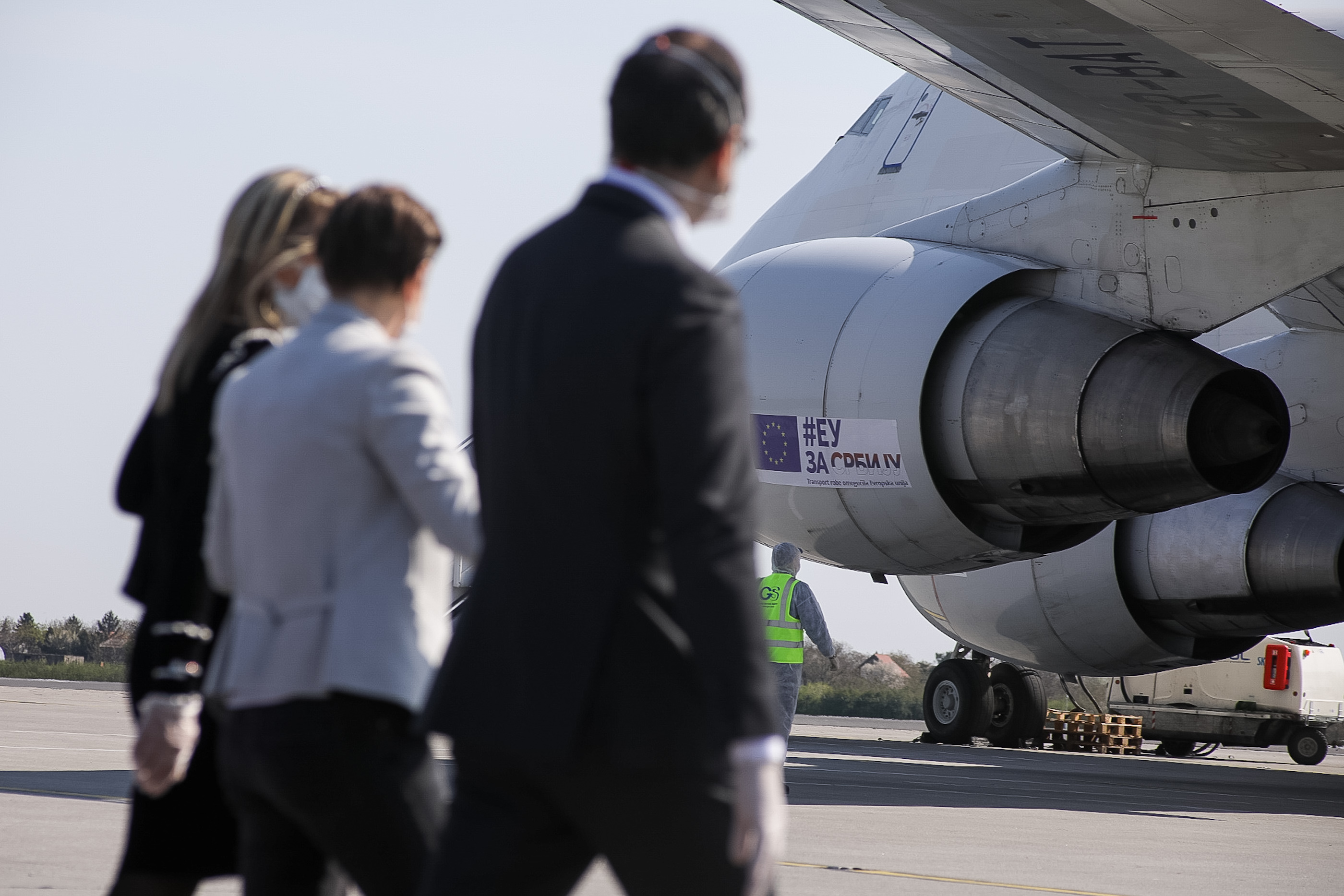
EU joint procurement agreement for purchase of health equipment.
This agreement enables the joint purchase of equipment and supplies of masks, gloves, goggles, face-shields as well as medical ventilators and testing kits witch are vital for hospitals, healthcare professionals, patients, field workers and civil protection authorities.
This agreement ensures:
Availability of medical equipment
The Council and the European Parliament adopted the postponement of the application of the Medical Devices Regulation by one year. Postponement allows health institutions and economic operators in Member States to prioritise the fight against the coronavirus pandemic, and to ensure patient health and safety until the new legislation enters into force.
High-quality coronavirus testing
The Commission adopted Guidelines on coronavirus test methodologies, to support Member States in their national containment strategies. In the absence of a vaccine, safe and reliable testing is the key method to ensure the collection of reliable data, aimed at minimising risk. Large-scale testing and antibody detection are necessary in monitoring the coronavirus progression.
Availability of medicines
The Commission called on Member States to ensure that Europeans have access to necessary and affordable medicines during the coronavirus outbreak, whilst protecting public health and preserving the integrity of the Single Market. The Commission issued guidelines to ensure the rational supply, facilitation of transport, allocation and use of vital medicines and prevent any shortages.
Matching demand with supply for medical equipment
The Commission has set up a ‘Clearing house for medical equipment’, for a period of six months. The Commission has contacts with hundreds of companies specialised in the production of medical devices and personal protective equipment including ventilators who have confirmed their intention to increase their production to meet demand.
Stockpiling and distributing supplies and equipment
The Commission proposed creating a strategic RescEU stockpiling – a common European reserve - of medical equipment such as ventilators, personal protective equipment, reusable masks, vaccines and therapeutics and laboratory supplies. The Commission will finance 90% of the costs of the stockpiling and will manage the distribution of the equipment to ensure it goes where it is needed most.
Export authorisations
The Commission took steps to secure the availability of personal protective equipment, by requiring exports of such equipment destined for outside the European Union. As a result, almost all Member States have lifted national export restrictions and the protective equipment can be delivered seamlessly across the Union to where it is most needed.
Temporarily lifting customs duties and VAT on imports
The Commission has decided to approve requests from all Member States and the UK to temporarily waive customs duties and VAT on the import of medical devices, and protective equipment, from third countries.
Supporting Member States in need and cross-border health cooperation
The European Commission’s Emergency Response Coordination Centre plays a key role in relief efforts and stands ready 24/7 to assist all countries, in Europe and beyond, that request specific support. The Commission adopted Guidelines on cross-border healthcare cooperation between national, regional and local authorities. The aim is to facilitate the transfer of patients from one Member State to another.
EU Solidarity for Health Initiative
The European Commission launched the EU Solidarity for Health Initiative, aimed at directly supporting the healthcare systems of EU Member States in combating the coronavirus pandemic. This initiative will provide for around €6 billion to cater for the needs of European health systems.